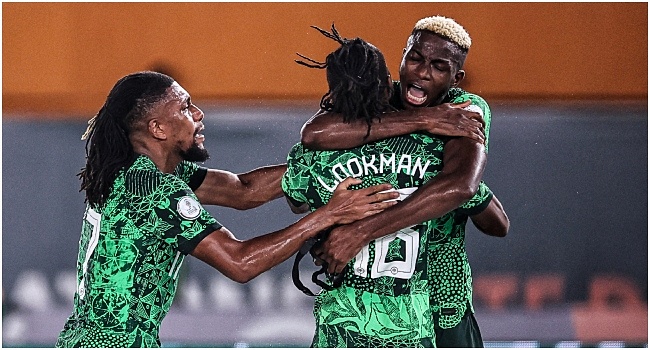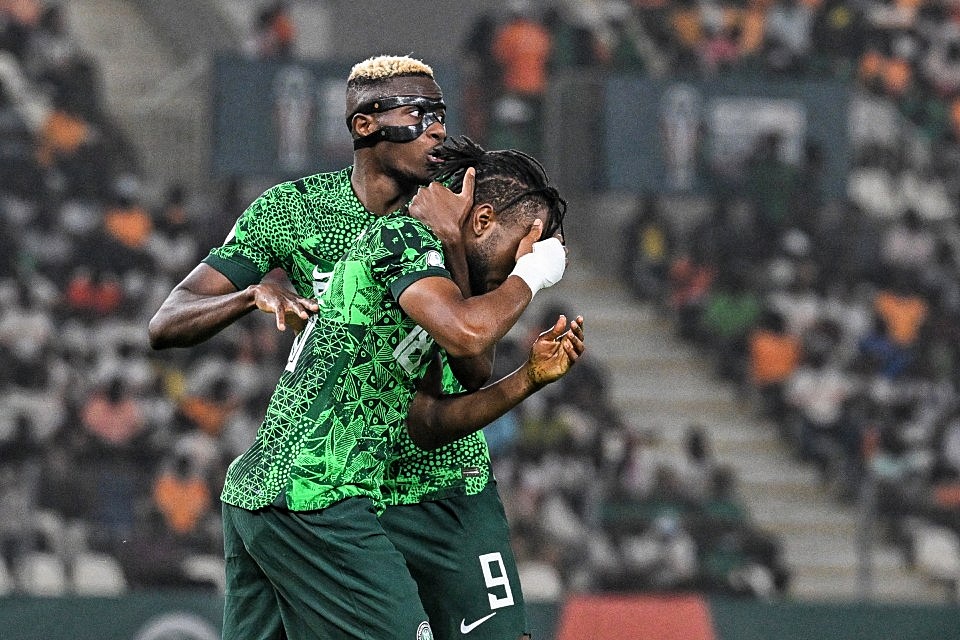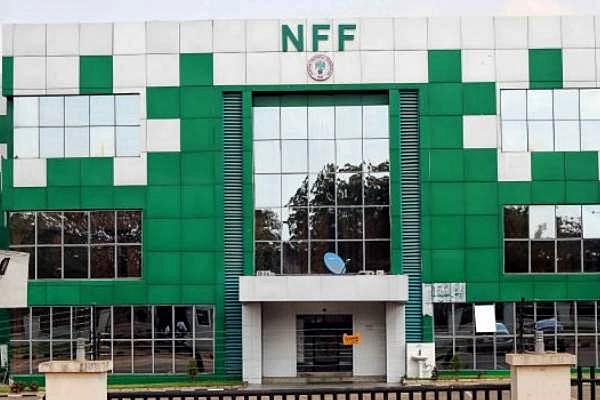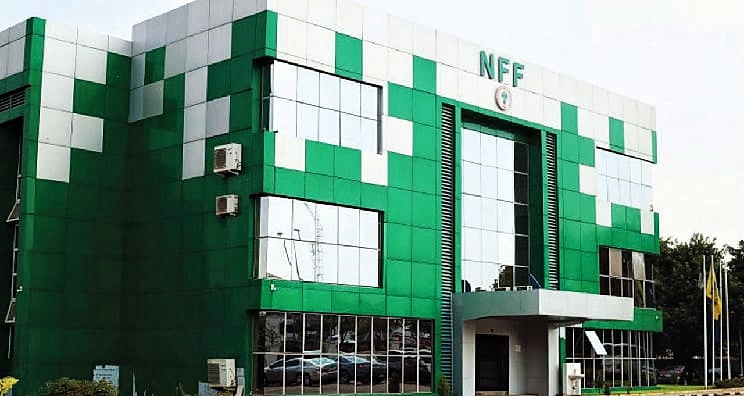By Olukayode Olumuyiwa.
In Nigeria, football is more than a sport—it’s the pulse of a nation. From the packed centers in Lagos to the town squares in northern Nigeria, over 60% of our 200 million people live and breathe the game. The Super Eagles are our pride, our unifier, and our chance to shine on the global stage. But as the 2026 World Cup qualifiers hang by a thread—Nigeria trailing Benin by three points in Group C after a scrappy 2-1 win over Lesotho last weekend—the fear of missing another tournament stings deep.

We felt the pain in 2022 when Qatar slipped away under our nose in Abuja. Another miss in the US, Canada, and Mexico? That’s a wound that could scar players, stakeholders, fans, the NFF, and the government. So, who stands to suffer the most?

Picture this: It’s October 14, 2025, at Uyo’s Godswill Akpabio Stadium. The air is electric, 20,000 fans are chanting for the Eagles. Victor Osimhen leaps for a header, but Benin’s counterattack steals the show. The stadium falls silent, then erupts in frustration. On X, #SuperEaglesFail trends as Chidi, a 45-year-old mechanic in Lagos, tosses his drink: “Eight years waiting, and now this? My boy grew up watching Osimhen, Lookman, Iwobi—what do I tell him?” In Abuja, NFF officials scramble to save face, while diplomats brace for the fallout. This isn’t just a game; it’s a national crisis. With Nigeria needing a three-goal win over Benin and luck in South Africa to qualify, the stakes couldn’t be higher. Let’s break down who takes the biggest hit.

The Stakes: More Than Just a Game
Football fuels Nigeria’s soul and its economy. The sports sector, driven by the round leather game, pumps billions into our GDP—some say $3 billion annually, with a World Cup run boosting that by 10-15%. Qualification brings $1.5 million from FIFA, plus millions more in TV deals, tourism, and sponsorships. Missing Qatar cost us $4 million in direct revenue and countless deals. More than money, it’s about image. Morocco’s 2026 qualification has them dining with world leaders; getting a chance of hosting global tournaments, Nigeria’s absence risks fading our global prestige, and remember, we intend to host the world with the Commonwealth Games come 2030.

Here’s a quick look at the damage for each stakeholder if we miss out:
NFF: | Cash, sponsors, trust | $4M lost in 2022; $10M+ in future deals | Reputation in tatters; pressure for reform mounts.

Players/Coaches: Bonuses, Legacy | $500K+ per star; squad loses $1-2M | Osimhen, Lookman, Iwobi, Ekong miss prime-time glory; Market value of players and coaches could double.

Some Primary Stakeholders: They sure know football has not only gone global but it has indeed become industrialized into a huge business, for not only those who retire as active pro-players who must continue their careers in the industry after the game, but also for those who have the money bags as investors, commercial partners, media partners et al. They sure need this global event to be at par on the highly competitive football market.
Fans : Passion, pride 20-30% drop in support since 2022 | Hearts broken, community spirit fades, and a possible raise in crime.
Government : Diplomacy, sports tourism | $50M+ economic hit; ranking drops to 45th | Harder to shake corruption stereotypes | Stagnancy in development driven through sports.
The government faces the deepest cut. While players lose personal dreams and the NFF scrambles and could face crisis, a miss dims Nigeria’s chance to rebuild its image and forge global ties. Fans hurt, but the state’s loss is systemic.
NFF: A House Already on Shaky Ground
Inside the NFF’s Abuja offices, the mood is tense. President Ibrahim Gusau faces a storm: late player bonuses, four coaches in one cycle—Peseiro, Finidi, Eguaveon, now Chelle—and a rap sheet of FIFA fines for mismanagement. Missing 2022 sparked outrage; another flop could force a reckoning. Fans demand a technical overhaul, pointing to the federation’s “non-football” leadership. A win buys time, and Gusau might be hailed again, but failure might finally push for the restructuring we’ve begged for—proper scouting, youth academies/better management of TDS, prompt quality coaches’ recruitment at all levels, transparency, and mostly the even distribution of voting power among its memebers. The NFF’s loss is big, but it could spark change.

Players and Coaches: Time’s Running Out
For the players, it’s now or never. Osimhen, 26, is at his peak, banging in goals for Europe’s top teams, from his time in Napoli to his current team Galatasaray, Lookman as reigning African best with flair lights up Europe, yet qualifiers expose cracks. Iwobi, pushing 30, carries the weight of past disappointments, and knows what this means for him, and Ekong at 32 knows as a captain that this his last chance is.
By 2030, most of this squad will be over 30, their World Cup dreams as good as over. A miss means no global stage, no mega endorsements, no immortality. And who forgets this squad was the youngest grade A national team in the world. For coach Eric Chelle, a loss or draw in Uyo likely ends his tenure—four coaches in one campaign scream instability. The stats don’t lie: Nigeria’s 11 goals in nine qualifiers lag behind Benin’s grit of ‘This is their shot, and it’s slipping.’

Fans: The Heartbeat Hurts
In Oshodi, Aisha, a jersey seller, sighs as her Super Eagles stock gathers dust. “We danced in ‘94,” she says, “now it’s just pain.” And how the nation-Nigeria danced in the streets in the 1996 Atalanta Olympics glory. Fans are the games’ soul—86% of us watched AFCON 2023—but back-to-back flops have dulled the vibe. Polls show a 25% drop in passion since 2022. Qatar’s miss killed local businesses: unsold jerseys, canceled watch parties, and silent bars. Another failure risks pushing kids from pitches to betting shops and fracturing communities. Yet, Nigerian fans are tough. They’ll pack Uyo tomorrow, screaming until the final whistle, heartbreak, or not.

Government: A Missed Shot at Redemption
The real loser? The government. Football is Nigeria’s megaphone to the world, drowning out headlines of corruption, bad governance, and scams. A World Cup run means trade talks in Washington, sports tourism spikes in Lagos, and a chance to rewrite our story. Missing 2022 dropped our FIFA ranking to 45th, making future paths tougher. Economically, it’s a $50 million hole—lost visitors, sponsors, and even academic grants are tied to global events. With 34% inflation biting, failing to leverage football’s soft power keeps Nigeria in the “corrupt” narrative. It’s a diplomatic own-goal we can’t afford to score.

Can We Turn It Around?
Tomorrow’s clash with Benin Republic is more than a match—it’s Nigeria’s mirror. “Alleged” corruption in the NFF, questionable coaches and players picks, decaying U17, U20, and U23, and underfunded grassroots got us here. But hope isn’t dead. A miracle 2 to 3-0 win and a South Africa slip up could make Osimhen, Lookman, Iwobi, and all a legend, reignite fan fire, and give the NFF and government a global stage. The government suffers most—a missed World Cup dims our shine when we need it most. Still, in Nigeria, we rise from ashes. As the whistle nears, over 200 million join hands together to see Nigeria make this happen this time. In the end, will it be glory or another heartbreak? Uyo will tell.

Galaxy Sports Production
Should we send you latest update about your favourite sports and team?
Enter you email in the box below and hit the subscribe button to join our teaming 876+ sports community.